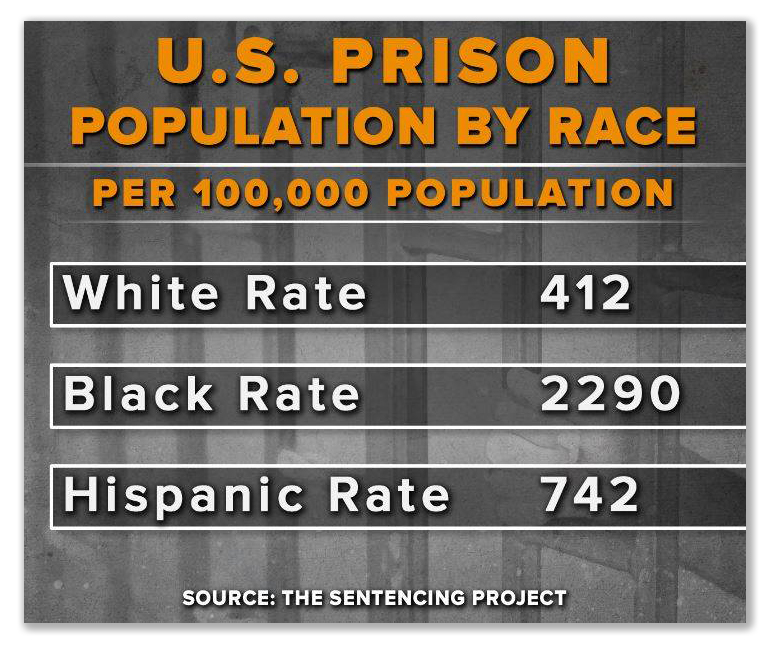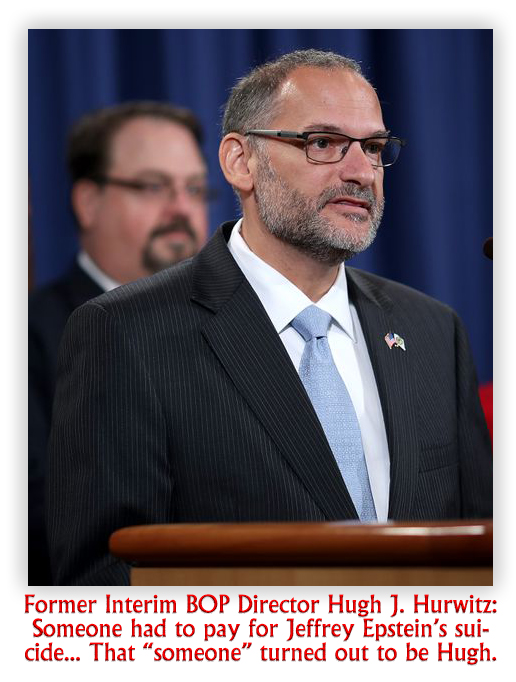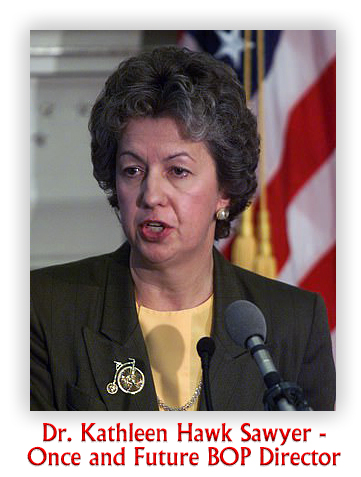We post news and comment on federal criminal justice issues, focused primarily on trial and post-conviction matters, legislative initiatives, and sentencing issues.

THE MIGHTY OAK HAS FALLEN
 Hey, all you inmates who signed up in a fevered rush for the Oaks of Justice home release program last year? The one with the fancy satellite monitor? How’s that working out for you?
Hey, all you inmates who signed up in a fevered rush for the Oaks of Justice home release program last year? The one with the fancy satellite monitor? How’s that working out for you?
Remember Oaks of Justice, the outfit run by the woman with many names, who was all the buzz on federal prison compounds last year? A year ago, Oaks was mere days away from springing the first of 1,200 inmates from institutions to home confinement and lawful employment. The nonprofit was noodling with White House officials and Bureau of Prisons bigwigs on kick-starting the program, and inmates were lined up like the commissary when a new Honeybun shipment arrives.
 Oaks of Justice had a great shtick: after I talked to Oaks “founder” Joanne Morgan, she had me convinced that the sun rose in the west and set in the east. Her “experts” were fine-tuning the satellite tracking system, which worked in some mysterious way Joanne could not quite explain, and bureaucratic roadblocks were being swept away by White House confederates of Jared Kushner. Sure I thought her website had been put together by 5th graders on a budget, but she said Oaks wanted to spend its money on developing the program, not bells and whistles. And sure I could not quite figure out how the smart watch trackers could communicate with satellites, but Joanne explained Oaks had a scientist who had put it all together. And sure I could not find any statutory authority for what Oaks was planning to do, but Joanne assured me that that was because I had insufficient imagination.
Oaks of Justice had a great shtick: after I talked to Oaks “founder” Joanne Morgan, she had me convinced that the sun rose in the west and set in the east. Her “experts” were fine-tuning the satellite tracking system, which worked in some mysterious way Joanne could not quite explain, and bureaucratic roadblocks were being swept away by White House confederates of Jared Kushner. Sure I thought her website had been put together by 5th graders on a budget, but she said Oaks wanted to spend its money on developing the program, not bells and whistles. And sure I could not quite figure out how the smart watch trackers could communicate with satellites, but Joanne explained Oaks had a scientist who had put it all together. And sure I could not find any statutory authority for what Oaks was planning to do, but Joanne assured me that that was because I had insufficient imagination.
Well, the mighty Oak has fallen… and crushed inmate hopes like a tree trunk hitting a cheap car. Inmates about to depart prison last April are still sitting on the bunks, possessions stuffed into mesh laundry bags awaiting that call to the front gate. And last week, The Marshall Project, a nonprofit focused on criminal justice, ran a lengthy piece by investigative reporter Christine Thompson putting a chainsaw to the mighty Oaks.
It sounded like a good deal for everyone involved,” Thompson wrote. “Participants would return to their families while the federal government would save “billions” on incarceration. Morgan has claimed in emails and phone calls with potential customers that officials with the Federal Bureau of Prisons and President Donald Trump himself support the program.
But attorneys familiar with the federal prison system and a former bureau official said, based on their years of knowledge and experience, that a program of this kind would never happen. A spokesperson for the Bureau of Prisons confirmed in an email to The Marshall Project that the agency has no such deal with the company. And a reverse Google image search shows the photos of the company’s “proprietary” new tracking devices appear to be consumer GPS devices from the Chinese e-commerce site Ali Express, marketed to help monitor confused elderly people or teenage children.
 Thompson noted that “Morgan — whose real name, according to court records, is Winnie Joanne Barefoot — insisted that the company was legitimate and was nearing approval from the Justice Department but that she could not provide proof.” As the LISA Newsletter of March 11, 2019, reported, “‘We have gotten the go-ahead from the White House’ for the program, Morgan said last Friday, ‘and we are waiting for acceptance of our protocols by BOP.’ Morgan expects BOP approval this week, and the first group of 600 prisoners to enter the program in March. She said two additional groups of 1,000 participants each should enter the program by the end of May.”
Thompson noted that “Morgan — whose real name, according to court records, is Winnie Joanne Barefoot — insisted that the company was legitimate and was nearing approval from the Justice Department but that she could not provide proof.” As the LISA Newsletter of March 11, 2019, reported, “‘We have gotten the go-ahead from the White House’ for the program, Morgan said last Friday, ‘and we are waiting for acceptance of our protocols by BOP.’ Morgan expects BOP approval this week, and the first group of 600 prisoners to enter the program in March. She said two additional groups of 1,000 participants each should enter the program by the end of May.”
By the way, Ms. Barefoot was released from federal prison in 2016 after a stint for banks fraud, but if anyone believes in second chances, I do, and I hardly judge her for that. As for the ever-changing names, I like to call myself “The Potentate of Post-Conviction,” but I don’t introduce myself that way. Like everything else about Oaks, Ms. Winnie Joanne Morgan Barefoot’s bell rang slightly off key.
So what was the scam? That is what still puzzles people. Each applicant was to pay a $250.00 application fee, but Oaks reportedly told people to wait until the company had BOP and White House approvals. Once the program started, inmates and their families would have to cough up thousands of dollars to participate in the program, but that was disclosed ahead of time, and those sums would be paid when the inmate entered the program. So while Oaks is phony, no one is quite sure what the point of the swindle was, or even for sure that it was a swindle.
 Nevertheless, Oaks crushed a lot of inmate hopes. Thompson told the story of female inmate with the last name Wallace, who had signed up with Oaks and was waiting… and waiting. “‘Prison is like a trial run of death,’ Wallace’s sister told Thompson. ‘You’re still breathing, you’re still getting up, but you have zero decisions about yourself. You have nothing… To have someone promising and promising and never come through—what can I believe?'”
Nevertheless, Oaks crushed a lot of inmate hopes. Thompson told the story of female inmate with the last name Wallace, who had signed up with Oaks and was waiting… and waiting. “‘Prison is like a trial run of death,’ Wallace’s sister told Thompson. ‘You’re still breathing, you’re still getting up, but you have zero decisions about yourself. You have nothing… To have someone promising and promising and never come through—what can I believe?'”
The Marshall Project, Trade Your Prison Sentence for a Smartwatch? – Another dubious get-out-early offer is spreading through federal prisons. Lawyers say it’s a fake (Jan 28)
LISA Newsletter, Oaks of Justice – Forget We Ever Said That (March 11, 2019)
– Thomas L. Root
































